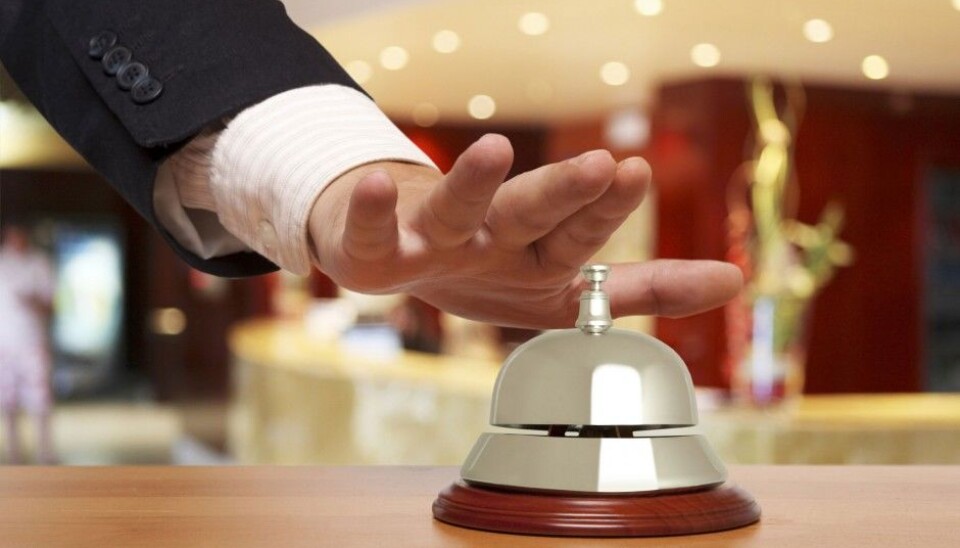
How hoteliers handle emotions and stress
Experienced hotel managers maintain a positive attitude while switching among various ways of controlling their emotions, tackling stress and covering their employees’ needs.
The hotel business is dynamic and challenging. Success hinges on managers and staff avoiding or controlling stress.
What tricks do experienced managers use to regulate their emotions?
Seasoned bosses shift a great deal among different methods for tackling their own and their employees’ emotions to keep hotels running smoothly, according to a recent doctoral dissertation.
Deep interview of experienced managers
Annie Haverat the University of Stavanger has extensive personal experience as a manager in the hotel trade and knows how hectic the work can be.

“The ways that managers tackle their own stress can have a big impact on the hotel and its employees,” says Haver. She chose this topic because very little research had been conducted in this niche area.
Haver interviewed nine leaders with lengthy experience as hotel managers. She says her findings can be of use to directors and managers in other trades as well.
Innumerable studies have shown that bosses’ emotions can strongly impact their employees. A sourpuss of a manager can make the daily grind at work hard to bear and undermine the output and the health of employees.
“A happy and satisfied manager has a positive influence on the employees and is invaluable for the firm,” says Haver, who is connected with the University of Stavanger’s Norwegian School of Hotel Management.
Positivity as a buffer
Hotel managers read and assess their environments in a smart way. Haver says this indicates they have emotional intelligence.
The hotel executives she interviewed said they have a positive approach to their jobs.
They use a positive mind-set as a buffer against stress, which promotes resilience. They emphasize the importance of establishing a positive and creative work environment where they actively help and support the staff in their self-development.
Haver reports that her interviewees said that they are better able to maintain creativity and decisiveness when they manage to keep up a positive mind-set.
Those who have a positive general outlook also find it easier to regulate their emotions, according to earlier research.
Haver says negativity has no place in the hotel business.
Some hospitality leaders say they compose themselves in their offices to ensure that any blues they might have don't infect the staff.
The five strategies
The hotel managers’ techniques for regulating their emotions fall into five different categories that have been defined by previous research.
• Re-evaluating incidents
• Putting on a mask
• Showing true emotions
• Adapting to the environment
• Leaving room to let off steam
The occasion and context will often steer the choice of strategy. Some hotel bosses switch between all of the methods while others use fewer.
“The smart leaders know which strategy to use and when to use it,” says Haver.
That means the bosses assess situations in a constructive way in close interplay with the people involved. They often have to deal with readjustments and challenges caused by the heating up of competition as new hotels are opened and say it’s important to be innovative.
Donning the mask
In certain situations managers have to hide their own feelings by donning a mask or suppressing emotions.
One problem might be stringent orders from hotel chain headquarters. Many say they find it necessary to conceal their personal dismay when they are passing down negative commands to the employees.
Haver says that leaders in the hotel trade usually have built-in social radar.
“They are responsible for creating enthusiasm and they need to genuinely care about their employees while remaining professional through all links of the chain.”
The managers say they are conscious of their roles and sensitive about how their and others’ behaviour is perceived in different contexts. The bosses also have to demonstratively portray the values of the hotel chains.
Stringent norms of behaviour
The hotel business has strict norms for how employees can act. There are clear disparities between what is considered accepted behaviour in front of guests and what can only take place in the privacy of the staff rooms.
“Overt outbreaks of emotions in front of customers are not accepted,” adds Haver.
But demanding situations occur fairly often and managers and staff may need to display natural feelings of anger, frustration or joy. It’s easier to appear authentic if you can show your real emotions.
Research has shown that it can be very unhealthy for employees to constantly have to suppress their feelings. This raises the risk of increased stress and burnout.
Letting off steam in the back room
So it’s important for the boss to allow the staff to vent their frustrations or anger in the back rooms.
Haver thinks that good managers can tell when employees need to let off steam and maybe sob a little now and then. This has a good effect on employees.
“The managers I talked to said you have to stay in step with your employees,” she said.
Haver says that Norwegians are relatively introverted but that nobody gains from constantly putting a tight lid on their emotions. As a contrasting example, she mentions that Italians don’t even have a word for burnout.
----------
Read the Norwegian version of this article at forskning.no
Translated by: Glenn Ostling







